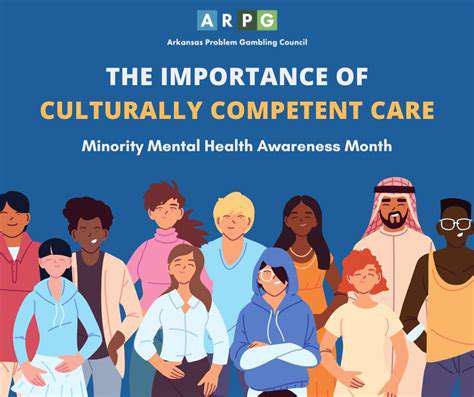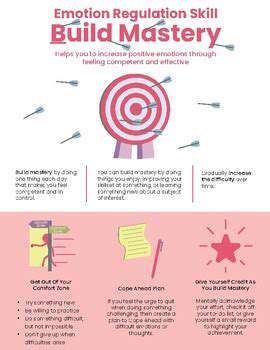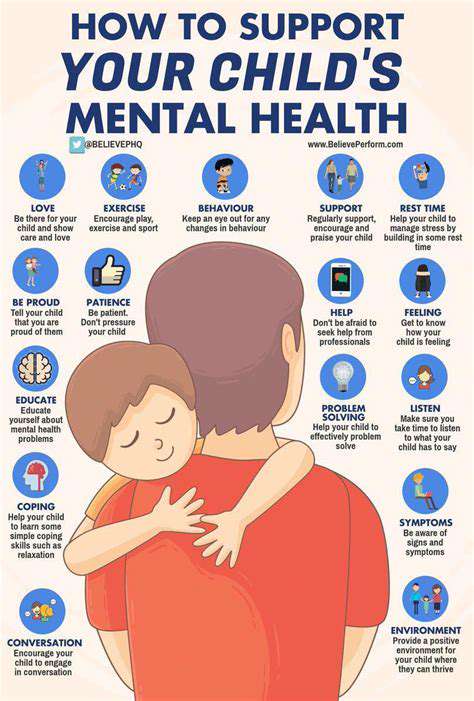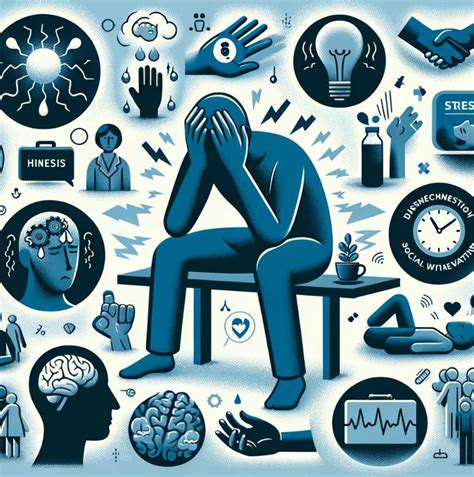Mental Health Initiatives for the LGBTQIA+ Community
Empowering LGBTQIA+ Individuals Through Self-Care and Community Building
Understanding the Importance of Self-Care
Self-care is crucial for all individuals, but especially for LGBTQIA+ individuals, who often face unique challenges and stressors. The constant need to navigate societal biases, discrimination, and microaggressions can take a significant toll on mental well-being. Prioritizing self-care practices, like engaging in activities that bring joy, practicing mindfulness, and setting healthy boundaries, is essential for fostering resilience and maintaining emotional balance in the face of adversity. Taking time to nurture your physical, emotional, and mental health is not self-indulgence; it's a vital component of overall well-being and empowers you to better navigate the complexities of life.
Recognizing the specific stressors LGBTQIA+ individuals encounter and implementing effective self-care strategies is paramount. This includes seeking support from therapists or counselors specializing in LGBTQIA+ issues, joining support groups, or connecting with other LGBTQIA+ individuals online or in person. Engaging in activities that promote self-acceptance and build confidence, like exploring hobbies, attending workshops, or participating in social events, are also integral parts of a comprehensive self-care approach. Acknowledging and addressing the unique challenges faced by this community is vital to promoting overall mental health and well-being.
Building a Supportive and Inclusive Community
A strong sense of community is fundamental to the well-being of LGBTQIA+ individuals. Connecting with like-minded individuals, sharing experiences, and receiving support from a network of understanding people can significantly reduce feelings of isolation and promote a sense of belonging. Participating in LGBTQIA+ events, joining online forums, or connecting with local organizations dedicated to supporting the community can create opportunities for meaningful connections and shared experiences. The strength of a community lies in its ability to provide a safe space for individuals to express themselves authentically and without fear of judgment or discrimination.
Building a supportive community isn't just about finding others who share similar experiences; it's also about fostering empathy, understanding, and acceptance within the broader society. Encouraging open dialogue about LGBTQIA+ issues, challenging negative stereotypes, and promoting inclusivity can create a more welcoming and supportive environment for everyone. Actively participating in community building initiatives and advocating for policies that protect and support the LGBTQIA+ community can contribute significantly to a more equitable and just society for all.
Seeking Professional Guidance and Resources
Navigating the complexities of mental health as an LGBTQIA+ individual can be challenging, and seeking professional guidance can be invaluable. Therapists, counselors, and other mental health professionals specializing in LGBTQIA+ issues can provide a safe and supportive space for exploring challenges, developing coping mechanisms, and building resilience. Utilizing the expertise of these professionals can help individuals develop a deeper understanding of their experiences and empower them to navigate the complexities of life with greater confidence and self-awareness.
Accessing resources and support services tailored to the needs of LGBTQIA+ individuals is crucial. Many organizations offer confidential support lines, online forums, and in-person support groups. Familiarizing yourself with these resources can equip you with the tools and strategies necessary to address mental health concerns effectively. Furthermore, exploring educational materials and workshops that address specific issues faced by this community can provide valuable insights and empower individuals to take control of their mental health journey.
Advocacy and Policy Changes to Support LGBTQIA+ Mental Health
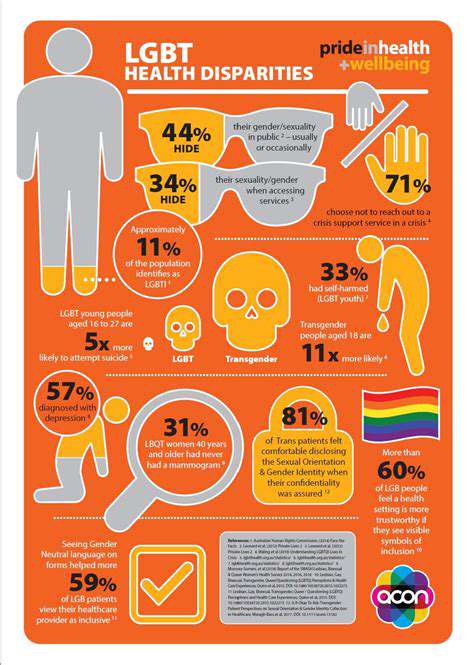
Advocacy Efforts for Systemic Change
Effective advocacy for policy changes related to sustainable practices requires a multifaceted approach. This involves not only raising awareness about the critical issues but also engaging with policymakers and decision-makers at all levels. A strong advocacy strategy must clearly define specific policy goals and outline actionable steps to achieve them. This includes identifying key stakeholders, building coalitions, and developing compelling narratives that resonate with the target audience.
Grassroots movements and community organizing play a crucial role in amplifying voices and mobilizing support for policy changes. These efforts often involve educating the public about the impacts of current policies and fostering a sense of collective responsibility for creating a sustainable future. Successful advocacy campaigns often leverage data and research to demonstrate the positive outcomes of proposed changes.
Policy Instruments for Sustainability
A range of policy instruments can be deployed to promote sustainability across various sectors. These can include incentives for adopting sustainable practices, such as tax breaks or subsidies, and penalties for environmentally damaging activities, such as carbon taxes. Regulation and standards are crucial tools for achieving specific sustainability goals.
Implementing stringent regulations regarding pollution levels and resource consumption can significantly reduce environmental damage. These policies should be carefully designed to balance economic considerations with environmental protection. Clear targets and timelines are important elements for effective policy implementation.
Collaboration and Partnerships
Successful advocacy and policy change initiatives often rely on strong collaboration between various stakeholders. This includes government agencies, businesses, non-governmental organizations (NGOs), and community groups. Partnerships can leverage diverse expertise and resources, leading to more comprehensive and effective solutions. A collaborative approach allows for diverse perspectives to be integrated, resulting in more robust and sustainable outcomes.
Building strong partnerships between research institutions, industry leaders, and policymakers can facilitate innovation and the development of cutting-edge technologies for sustainable practices. This collaborative approach ensures that the latest scientific advancements and technological solutions are considered in the development and implementation of policies. These partnerships are essential to create a shared understanding of the challenges and opportunities in achieving sustainable development goals.
Monitoring and Evaluation of Policy Outcomes
Effective policy change requires a robust system for monitoring and evaluating the outcomes of implemented policies. Regular assessments and data analysis are essential to identify the strengths and weaknesses of existing policies and to make necessary adjustments for optimal results. Careful monitoring of environmental indicators, economic trends, and social impacts associated with policy changes is crucial.
Data-driven evaluations provide valuable insights into the effectiveness of different policy interventions and inform the development of future strategies. This feedback loop ensures that policies remain relevant and effective in addressing the evolving challenges of sustainable development.
Read more about Mental Health Initiatives for the LGBTQIA+ Community
Hot Recommendations
- Customized Sleep Schedules: AI Driven for Sustainable Rest
- Crafting a Personalized Productivity Plan for Mental Clarity
- Sustainable Self Compassion: Cultivating Kindness Towards Your Mind
- Sustainable Productivity Hacks for the Busy Professional
- Sustainable Wellness for Parents: Balancing Family and Self Care
- Data Informed Self Care: Designing Your Personalized Wellness Strategy
- Sustainable Wellness for a Purpose Driven Life
- AI Assisted Mindfulness: Personalized Meditations for Deeper Practice
- Building Inclusive Mental Health Services: Key Initiatives
- AI Powered Self Care: Customizing Your Routine for Maximum Impact





